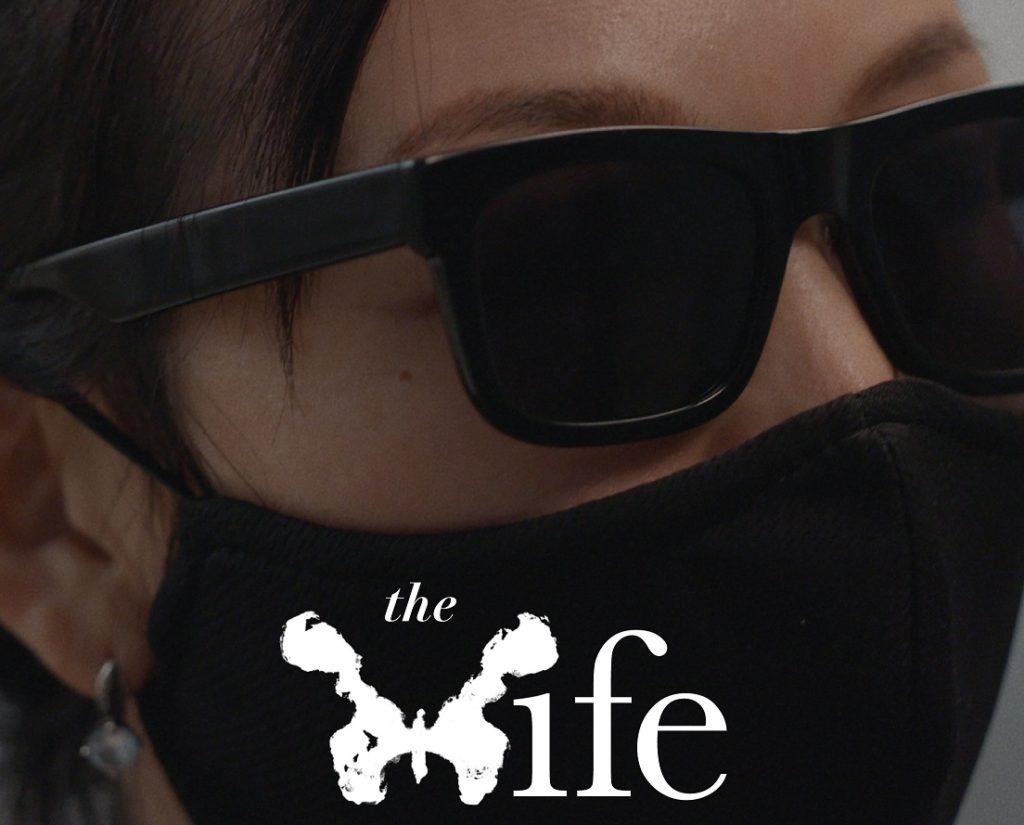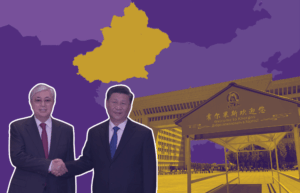Directed by Kana Beisekeyev and produced by Kairat Nurmugambetov in association with Qazaq TV, the short documentary The Wife is a powerful and harrowing account of four women’s experience of domestic abuse.
Zhena, or The Wife, is a 2021 documentary which focuses on domestic abuse in Kazakhstan. This issue is not often discussed or acknowledged in Kazakhstani society, and it speaks to the wider social problems in the country, and the region as a whole. The narrative in The Wife highlights the psychological and systemic reasons for ongoing violence in the home, and what can be done to remedy this problem.
Want more Central Asia in your inbox? Subscribe to our newsletter here.
The short film is freely available on YouTube with English subtitles. Novastan spoke to director Kana Beisekeyev about what he wanted to achieve with the film and what the reaction has been. His answers have been edited for clarity and brevity.
Novastan: What made you want to approach the subject of domestic violence in Kazakhstan now?
Kana Beisekeyev: In the last year, a lot of newspapers have started discussing domestic abuse so I was interested in making a project about this subject. When you think about domestic abuse, you imagine a really harsh, extreme story, but this is the reality of what is happening in Kazakhstan. I don’t think there’s been a documentary made like this before in our country. It was actually last spring, when my crew and I decided to make this film but then lockdown delayed it. Afterwards, we heard that cases [of domestic violence] increased during lockdown, when people were closed in at home. And we knew we had to talk about this difficult subject now.
I thought about how I could tell people my age, the younger generation, about this topic. Honestly, it was so painful to make because I was so far from this subject with my own upbringing. I had never really heard about this before, I have an older sister and I was a bit surprised when I heard stories of how, within our culture, it’s very difficult to be a woman. But if men talk about this issue with their girlfriends, they begin to hear many stories of abuse. There’s abuse in the home, even from brothers and other relatives, abuse in the street, abuse at work. Things from the outside may seem okay, but they really are not.
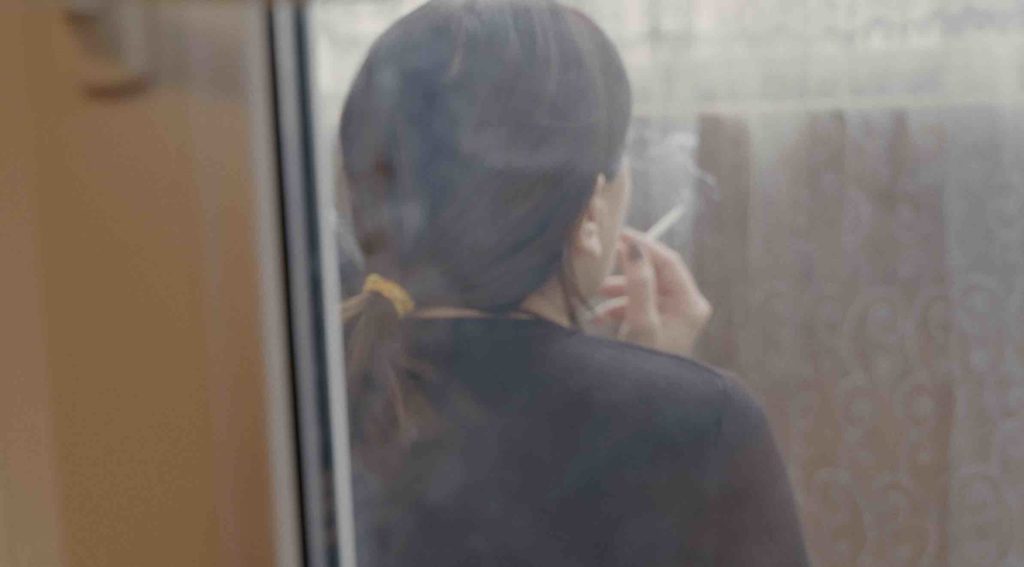
Your documentary touches a lot on how gender roles are very rigid in Kazakhstan. There is this culture of blame around women, that they are at fault for minor things such as when their child gets in trouble or the dinner is burnt, and then it escalates. Where does this come from?
The gender issues come from our culture and idea of family. It is seen a more of a privilege to have a boy than to have a girl. This is true not only in Kazakhstan but in most Central Asian cultures, even in the Caucasus and Russia. Most of the countries around here have this social issue around boys. There’s not a good gender balance, parents are probably going to be happier with a son. It sounds like a joke, but the joke is that it’s really true.
It’s coming from all directions actually. From novels, from movies. Even women in our culture often believe having a son is better for them. These are widespread opinions, we have a really huge gap between girls and boys. In our society, women have to show their balls to succeed. So you’re not just a woman, you have all these extra responsibilities and expectations. It is not fair game between men and women.
So you mean, women have to prove themselves more because they start life with a disadvantage?
This pressure starts all the way from school actually. Boys can start school without good grades and make up for it later, but girls are expected to have ‘A’ marks only. Even if a woman graduates school to prove herself, her older parents will ask: “why do you need this diploma? You should be getting married instead.” Girls have to be learn to be a “good woman” and a good professional. A lot of families act like this, especially in the smaller villages. I’m not talking about all of the people, but this opinion exists in our society and leads to larger problems.
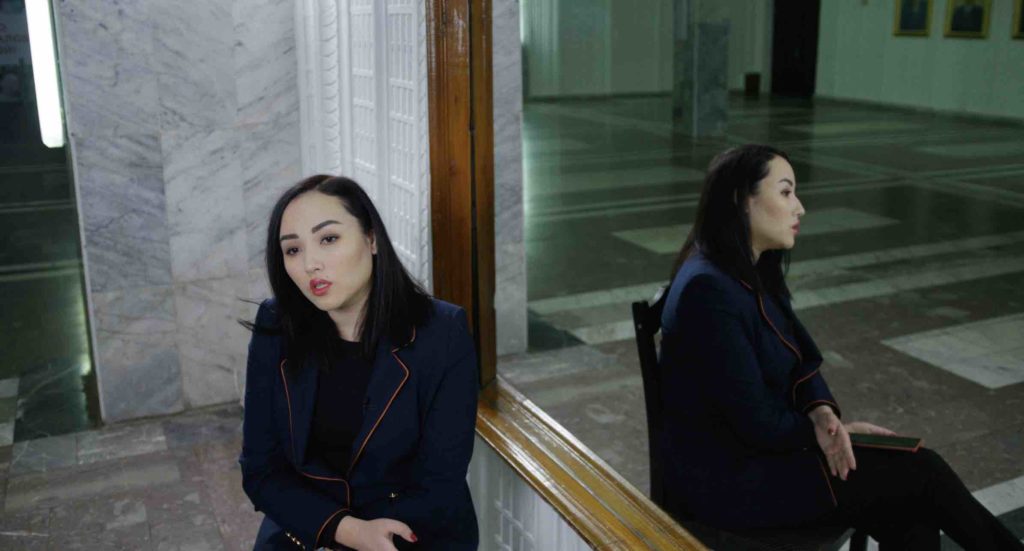
The film touches on alcohol as a trigger for domestic violence. Is alcoholism considered a big problem in Kazakhstan?
Yeah, especially outside of the big cities. In small towns, if you go to the local store, you’re probably gonna see a lot of alcoholic products. Mainly vodka. It feels like the 90s, like the USSR or Russia. People here don’t know how to drink without going crazy but now they can drink like crazy. Alcoholism is mainly happening with men.
This comes back to money: a lot of men don’t have a job. Without earning, it is very hard to survive and that means a lot of men become depressed. This depression leads to drinking vodka with similar people, the same friends who can’t find a job. It’s the same problem, over and over. They will talk about their hard lives, about their problems with women. The wife, looking after the children at home, will ask her husband: “Why are you doing this? We don’t have money for alcohol, we need you to get a job to support us.” The husband will argue back: “I’m the man of the house. Don’t talk to me like this.” And it can escalate badly after that.
One of the biggest problems in Kazakhstan, around the subject of domestic violence, is that a lot of parents don’t teach their kids how to be a good husband or wife when they’re older, how to be a good carer. We have a big knowledge gap around this. Family is not a toy, a lot of people are not ready for it. Women start getting married early, even like 18 or 19 years of age in small towns. If you are older than 25, you are seen as too old to marry, even in cities. As a society, we seem to be making such early commitments. Two people at this age don’t know how to be proper adults, they’ve only just stopped being kids. Our issues come from this cultural and educational gap, and leads to dangerous situations.
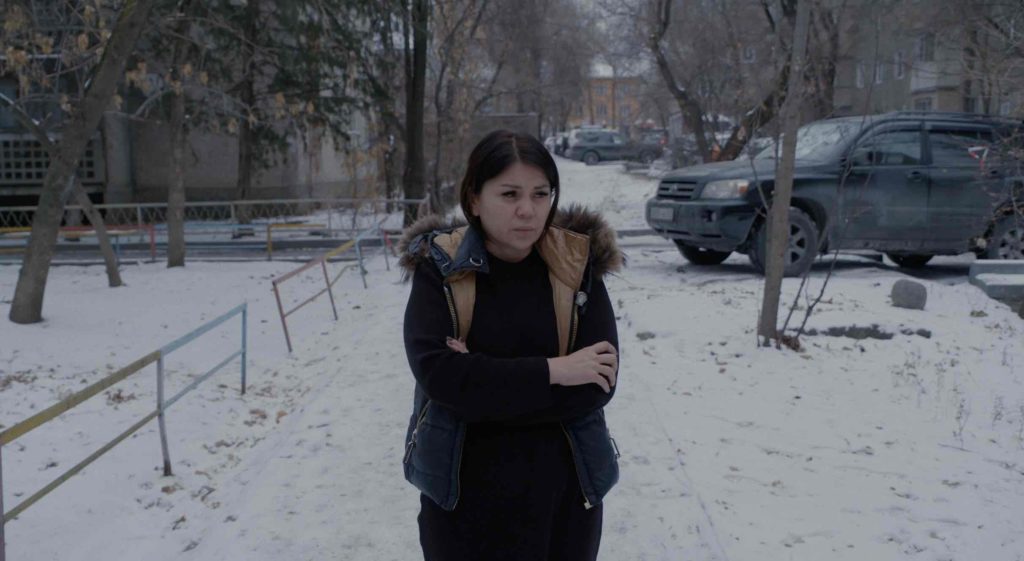
One of the quotes that stood out in the film was “the system allows this to happen”, meaning that domestic violence has been enabled by the police and lawmakers not taking the issue seriously. This is compounded by the ease in which bribery and corruption takes place, as another quote illustrates: “you can buy anything here”.
With this film, were you hoping to open the conversation to discussing other, related issues in Kazakhstani society such as corruption and power systems?
It is more about reaching ordinary people, getting them to wonder why abuse is not talked about or discussed more openly. I made this movie for the people, they just have to know what is happening in our country. They need to understand what needs to be done and what to do if the same situation happens to them. This might mean changing our laws to save people’s lives. It is a struggle because we have cultural issues which reach higher than law.
When women go to the police after violence occurs, they often meet men who know their husband or do not take it seriously. The police treat the case as a small family dispute, telling the women to go home and try again. They will give reassurances, telling the victims that it’s going to be okay. They may write a report about the husband, but if you try to access the report again two days later, it might just not exist anymore. This is what many are up against.
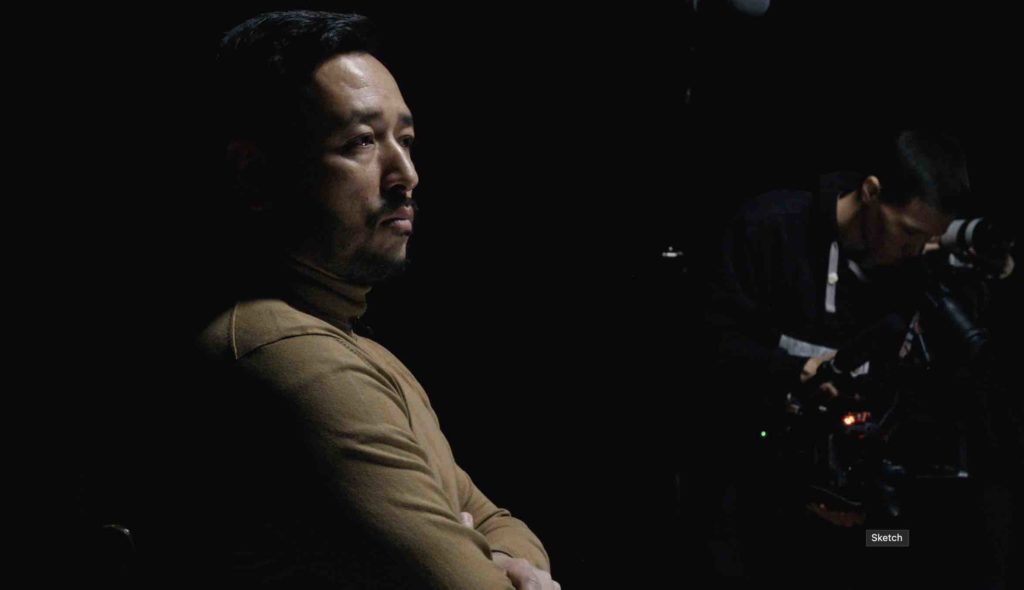
What was the effect of having a comedian comment and make jokes about the situation on an empty stage? What were you trying to achieve with this?
He is a real comedian who wrote his own jokes for this. I had heard his jokes about domestic violence before and asked him why he was making humour out of these situations. He answered that it was because of his own family experiences. This actually inspired us to make the documentary from a comedian’s point of view, which is where we started from. At least in comedy, he’s talking about the problem, even though he’s making jokes, it’s bringing the conversation to life a bit.
What was the reaction in Kazakhstan to this documentary? Has it been met with any resistance?
It has been really interesting. Some reaction has been good, but not all. Some people have blamed us because they think we are extreme to bring this subject up and we support changing the existing laws about domestic abuse. Even some voices in the feminist community did not like the documentary because they asked why it is mainly men talking about this abuse.
You know, it’s really hard, the subject has not been easy to talk about. I just wanted to make something that is going against the abuse. I just wanted to talk to a few people about it. But, in the film, there are some conversations between men and some have asked, why not include women having this same talk? There has also been some backlash from smaller communities like family groups. It was surprising. But we do talk to women. I mean, the film is about men and women. It’s about this culture where boys and girls are taught from a young age to think differently, and how this affects us when we’re older.
At the end, the documentary states that a new law on combating domestic violence will come into force in the spring of 2021. How do you anticipate this changing things?
I hope this will change things, making it a bit harder to get away with domestic violence. Right now the process is very slow if you are even fined for domestic abuse. So I think the new law has to protect women much more. We also have to work with the husband on this, where possible. I’m not a lawyer so I’m not sure how it will work specifically but I think it is a step in the right direction.
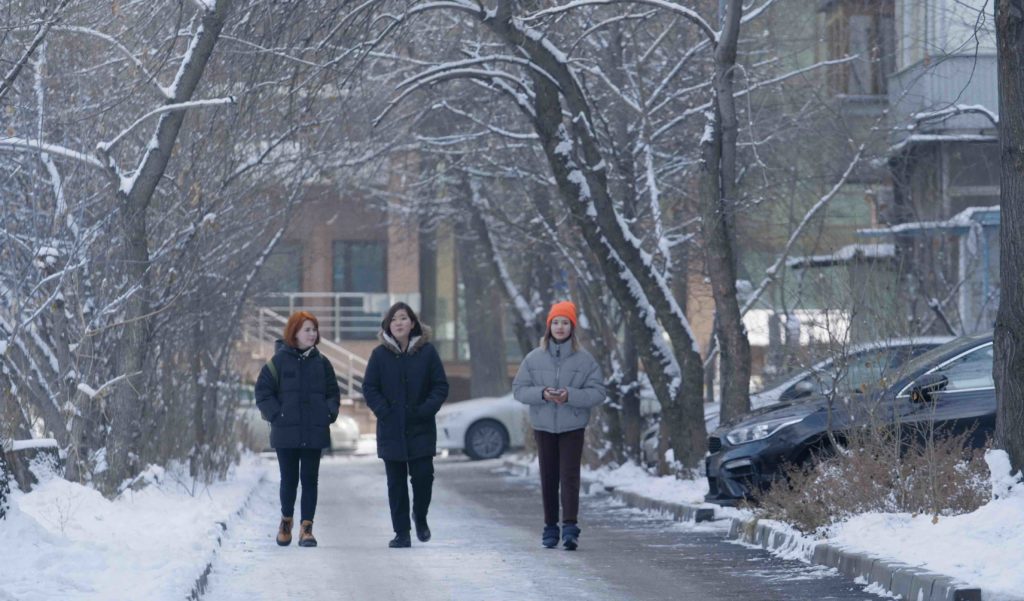
What projects are you working on next?
I’ve been working on a documentary which talks about the Uyghur camps in Xinjiang, which has included Kazakhs too. I have found some people who have been in these camps, who now live in Washington, DC. Right now I’m editing, so hopefully in the next month or two it will be uploaded to YouTube.
The Wife is available to watch on YouTube.
Tommy Hodgson
For more news and analysis from Central Asia, follow us on Twitter, Facebook, Telegram, Linkedin or Instagram.
 The Wife: the short film highlighting domestic violence in Kazakhstan
The Wife: the short film highlighting domestic violence in Kazakhstan 
